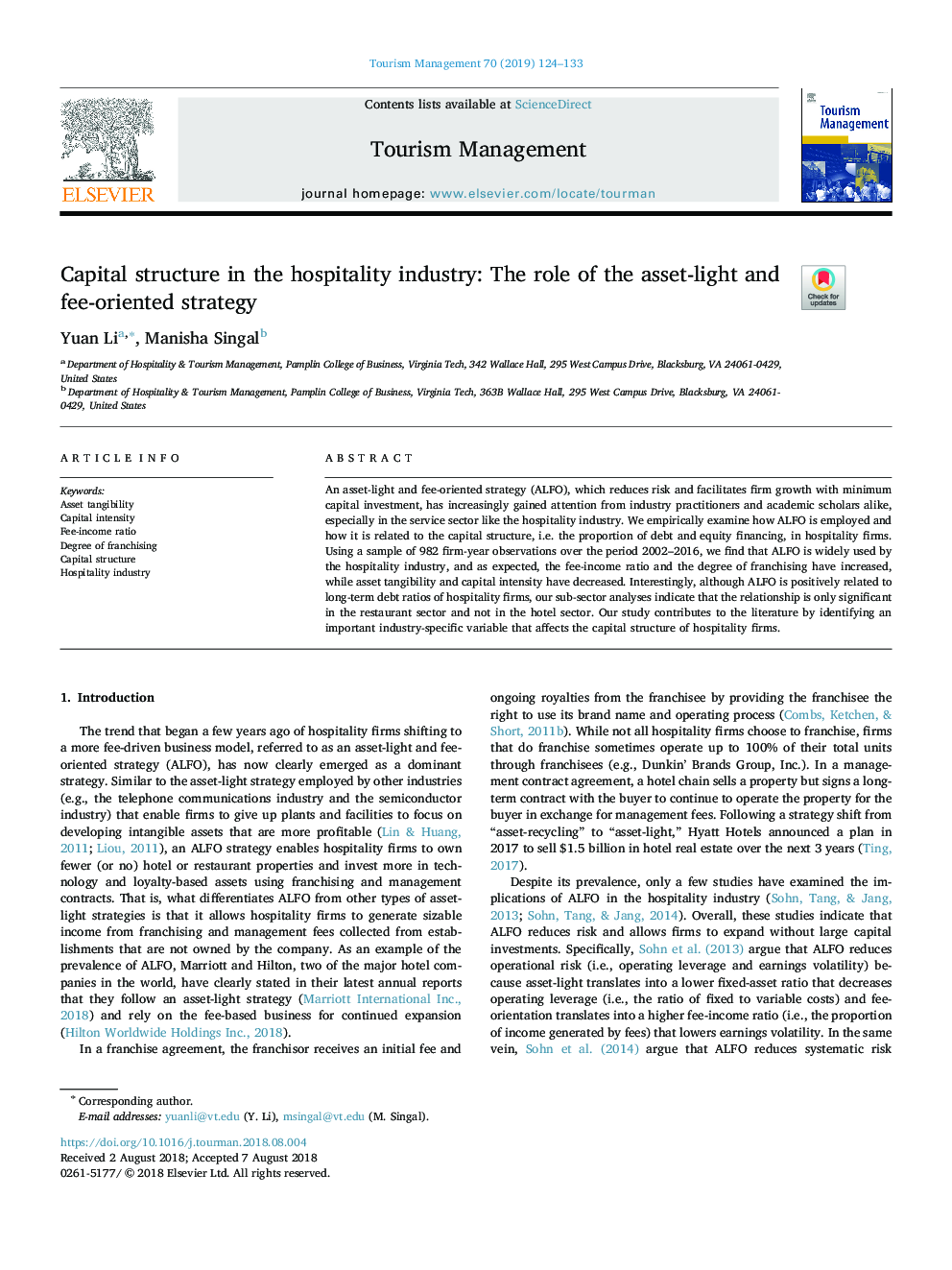| Article ID | Journal | Published Year | Pages | File Type |
|---|---|---|---|---|
| 7420517 | Tourism Management | 2019 | 10 Pages |
Abstract
An asset-light and fee-oriented strategy (ALFO), which reduces risk and facilitates firm growth with minimum capital investment, has increasingly gained attention from industry practitioners and academic scholars alike, especially in the service sector like the hospitality industry. We empirically examine how ALFO is employed and how it is related to the capital structure, i.e. the proportion of debt and equity financing, in hospitality firms. Using a sample of 982 firm-year observations over the period 2002-2016, we find that ALFO is widely used by the hospitality industry, and as expected, the fee-income ratio and the degree of franchising have increased, while asset tangibility and capital intensity have decreased. Interestingly, although ALFO is positively related to long-term debt ratios of hospitality firms, our sub-sector analyses indicate that the relationship is only significant in the restaurant sector and not in the hotel sector. Our study contributes to the literature by identifying an important industry-specific variable that affects the capital structure of hospitality firms.
Related Topics
Social Sciences and Humanities
Business, Management and Accounting
Strategy and Management
Authors
Yuan Li, Manisha Singal,
